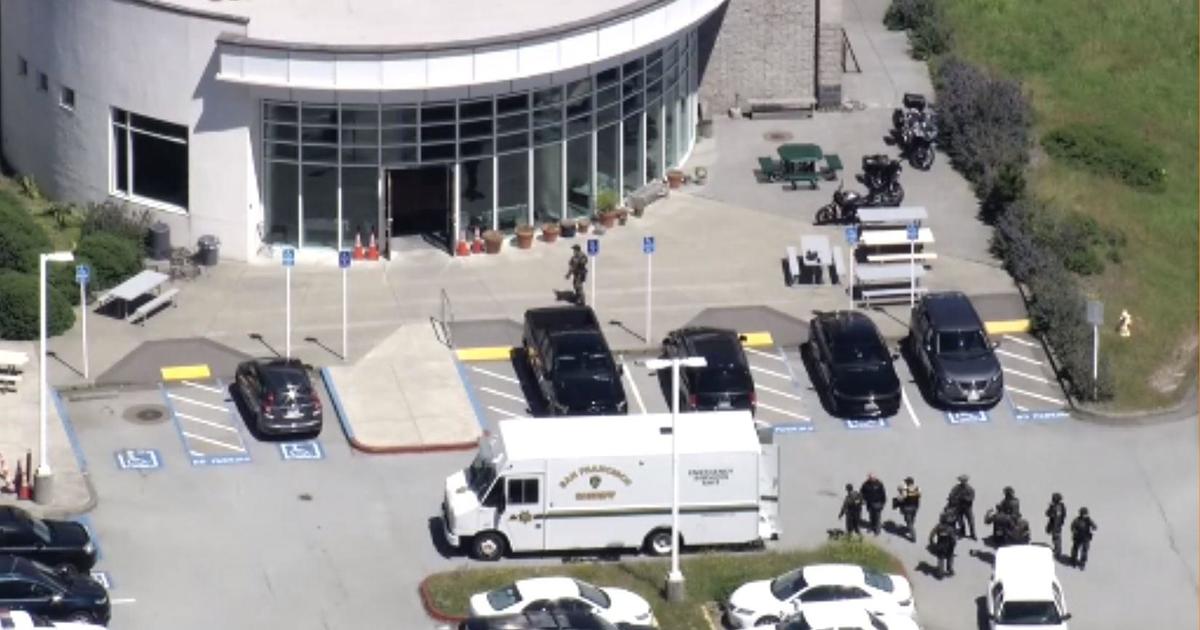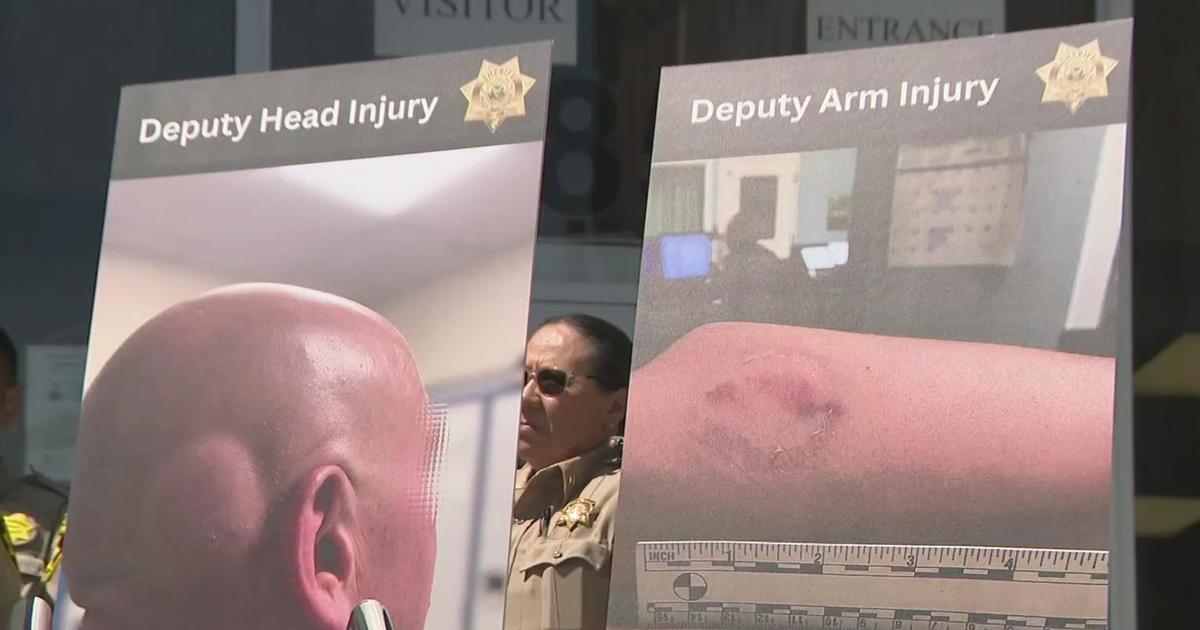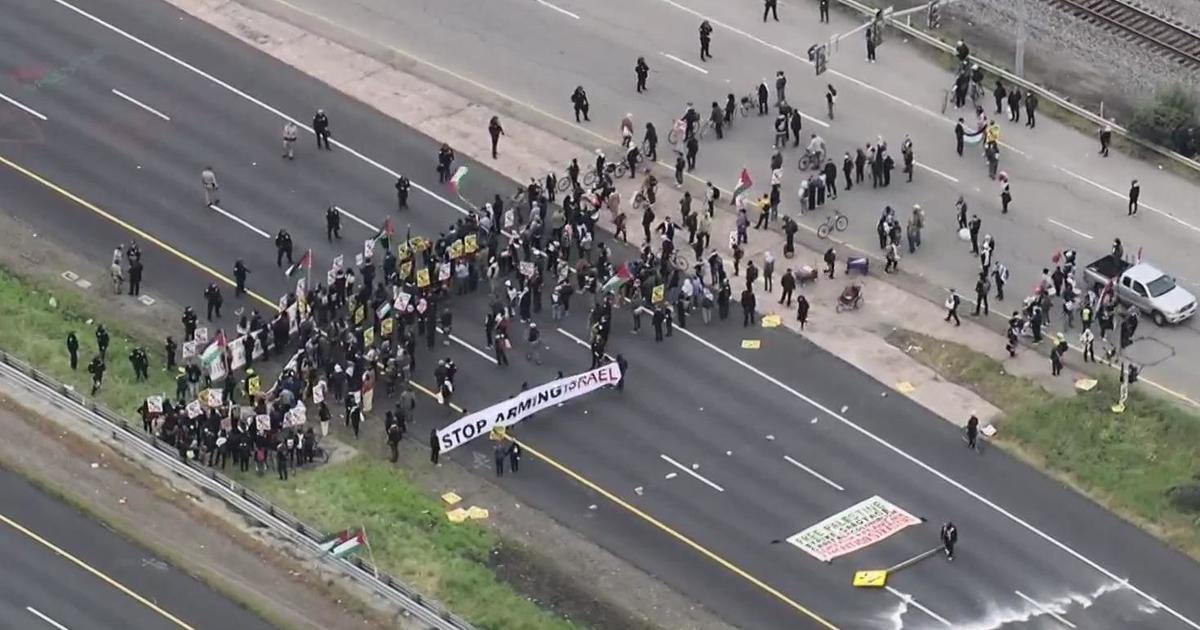Oil 'Fracking' May Come To Southern Monterey County
SAN ARDO (CBS 5) -- Hydraulic fracturing or "fracking" could make 14 billion barrels of oil reserves in the hills and valleys beyond the Monterey County town of San Ardo accessible.
Standup oil wells are nothing new for ranchers in southern Monterey County. The area is home to the San Ardo oil fields, where companies such as Chevron have been pumping for 60 years. New technology could allow the drilling to expand to places where oil lies much deeper, in an area known as the Monterey Shale.
"This formation has been known about for a very long period of time; now we have technologies, enabling technologies, that allow these reservoirs to be produced economically," said Stanford geophysicist Mark Zoback.
Related Coverage:
Some Landowners May Not Have Say On 'Fracking'
He said shale oil is harder to harvest because an oil drill needs to go down and then out horizontally using the controversial technique hydraulic fracturing. With oil at almost $90 a barrel, Zoback predicts things are about to quickly change.
In Monterey County, oil prospectors are knocking on landowners' doors trying to buy up their leases.
"Now all of a sudden the people that drill for oil are more interested in going out and getting these mineral rights from property owners," said county assessor Steve Vagnini.
"There is just a lot more activity and a lot of that activity is in places where there hasn't been much activity for a long period of time," said Zoback.
Vagnini said companies have to record the mineral rights transfer with the county. "We are starting to see more of those recently," he said.
Landowners such as rancher Mary Orradre are seeing dollar signs, while others fear the worst.
Cattle land is considered oil land in southern Monterey County and Mary Orradre likes it that way. "It's been very good the last couple of years," said Orradre. Under the fields where her cows range, there is an abundance of oil, which is a constant source of revenue that helps keep her ranch going.
Oil companies do not reveal how much they pay landowners. Leases aren't taxed until the well actually produces, so the county does not keep track of them.
"It's not made public. We don't know," said Vagnini.
It's the secrecy that bothers vineyard owner Paula Getzelman the most. "We feel the oil companies are not as forthcoming as we feel they need to be," said Getzelman. She's most concerned with the potential impacts of fracking.
"Our biggest concern is the quality and quantity of water," said Getzelman. It takes at least one million gallons of water to frack a single well. "Pretty soon we are looking at depleting the water table to the point where we can't irrigate the grapes," she said.
According to the industry, the water gets recycled and there has never been a case of groundwater contamination from fracking in California, but Getzelman remains hesitant.
"Having an oil derrick behind your vineyard is not sending the message you want to send," said Getzelman.
Orradre disagrees. "Maybe they tasted some wine they didn't like, don't blame it on the oil," she said.
For those who hope to strike it rich, Orradre said, "I would be very careful; you can't just lease it to the first guy that knocks on the door."
Orradre won't disclose how much she earns from her oil leases. Just like the size of their cattle herds, it's something ranchers don't like to talk about.
While Orradre owns the oil under her land, many landowners do not. For those landowners, they won't receive royalties from the oil and don't have a choice whether an oil derrick goes up on their property or not.
(Copyright 2012 by CBS San Francisco. All Rights Reserved. This material may not be published, broadcast, rewritten, or redistributed.)



